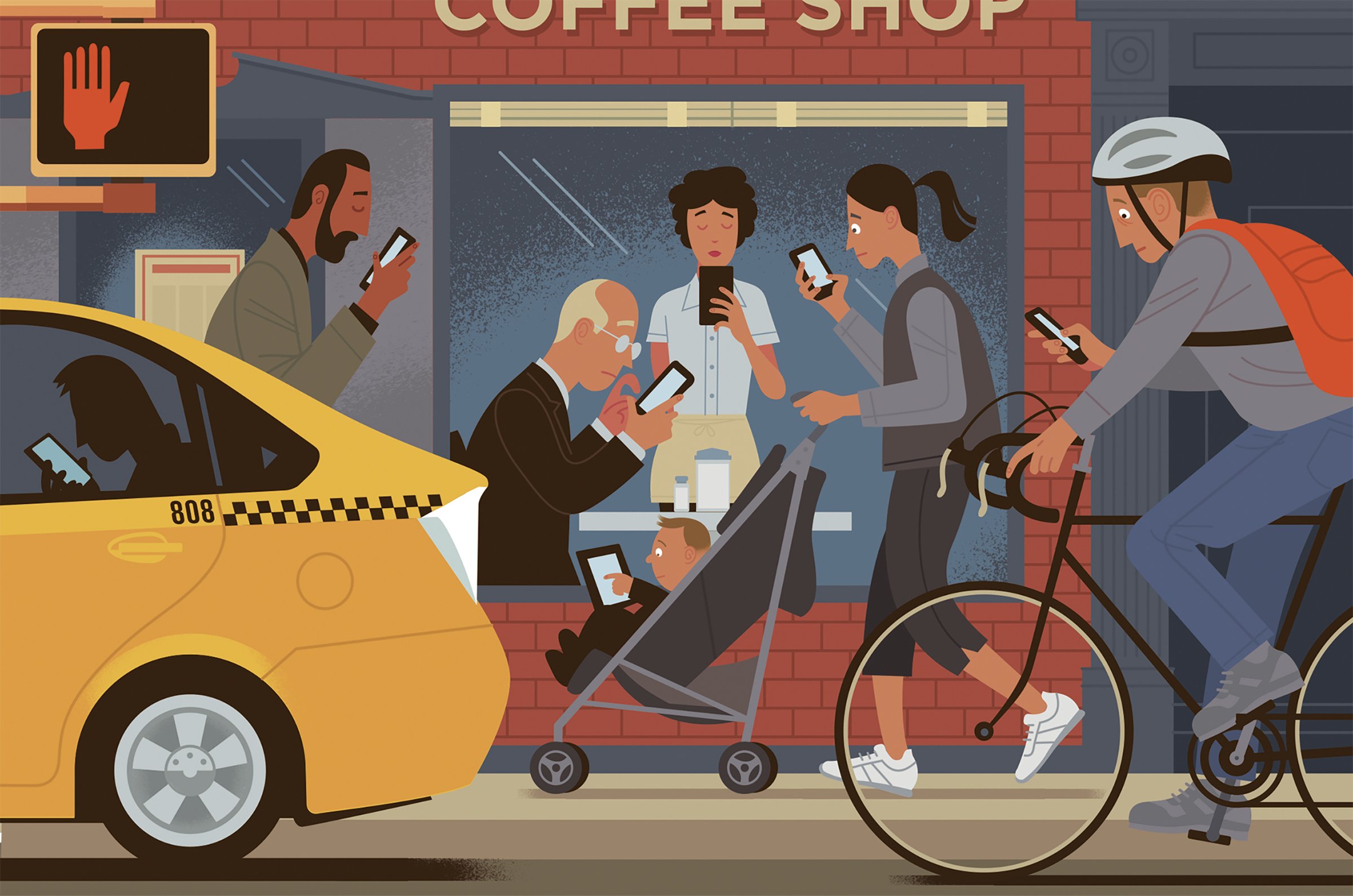
Sedentary lifestyle: Technology can encourage a sedentary lifestyle, which can lead to obesity, diabetes, heart disease, and other health problems. Spending long periods of time sitting in front of a computer or using a mobile device can also lead to back pain and other musculoskeletal problems.
Blue light exposure:
Blue light is a high-energy, short-wavelength light that is emitted by electronic devices, such as smartphones, tablets, computers, and LED lighting. Exposure to blue light can have negative effects on our health, particularly on our sleep-wake cycles.
Blue light can interfere with the body’s production of melatonin, a hormone that regulates sleep and wakefulness. When we are exposed to blue light, especially in the evening and at night, it can suppress melatonin production, making it harder to fall asleep and stay asleep. This can lead to sleep deprivation, which can have negative effects on our physical and mental health, including increased risk of obesity, diabetes, heart disease, depression, and anxiety.
In addition to affecting our sleep, blue light exposure can also cause eye strain, headaches, and dry eyes. Prolonged exposure to blue light can potentially cause damage to the retina, the light-sensitive layer at the back of the eye, which may increase the risk of age-related macular degeneration.
To reduce the negative effects of blue light exposure, it is recommended to limit screen time, especially in the evening and at night. There are also blue light filters and apps that can be used to reduce the amount of blue light emitted by electronic devices. Using warm or yellow-toned lighting instead of blue or cool-toned lighting can also help reduce the negative effects of blue light. Finally, it is important to practice good sleep hygiene, such as setting a regular sleep schedule and creating a relaxing bedtime routine, to ensure adequate sleep and mitigate the effects of blue light exposure on our health. The blue light emitted by electronic devices, such as smartphones, tablets, and computers, can disrupt our sleep-wake cycles and interfere with our ability to fall asleep. This can lead to sleep deprivation, which can have negative effects on our mental and physical health.
Radiation exposure:
Radiation exposure occurs when a person is exposed to ionizing radiation, which is a type of high-energy radiation that can ionize atoms and molecules, potentially leading to tissue damage and DNA mutations. There are many sources of ionizing radiation, including natural sources such as cosmic rays and radon gas, as well as artificial sources such as X-rays, CT scans, nuclear power plants, and nuclear weapons testing.
The amount of radiation a person is exposed to is typically measured in units of sieverts (Sv) or millisieverts (mSv). The effects of radiation exposure on the body depend on several factors, including the dose of radiation, the type of radiation, the duration of exposure, and the part of the body that is exposed.
High doses of ionizing radiation can cause immediate effects, such as radiation sickness, which can include symptoms such as nausea, vomiting, hair loss, and damage to the immune system. Long-term exposure to lower doses of radiation can increase the risk of cancer, particularly for organs such as the thyroid, lungs, and breast, which are more sensitive to radiation.
To mitigate the risks of radiation exposure, various safety measures are employed, such as wearing protective clothing, limiting exposure time, and using shielding materials such as lead. Additionally, individuals can take steps to minimize their exposure to radiation in everyday life, such as limiting unnecessary medical imaging procedures and avoiding high-risk areas, such as locations with high levels of radon gas.
Social isolation: While technology can facilitate communication and social interaction, it can also contribute to social isolation and loneliness. Spending too much time on social media, for example, can lead to feelings of inadequacy and depression.
Addiction: Technology can be addictive, particularly for individuals who have a predisposition to addiction. Excessive use of technology can lead to compulsive behavior, anxiety, and other mental health problems.




